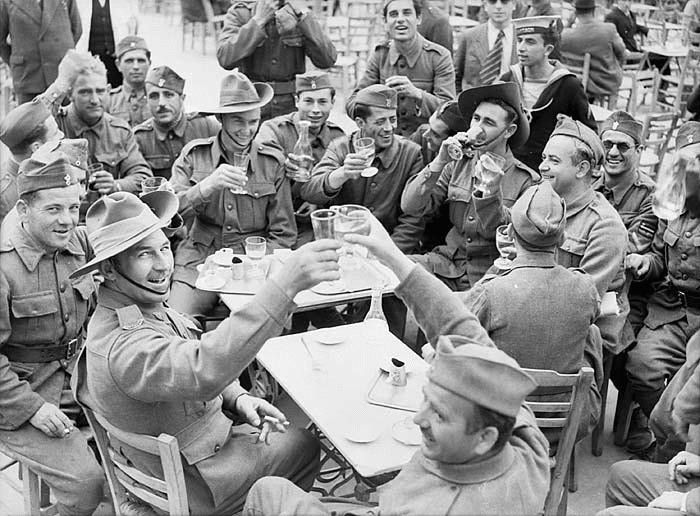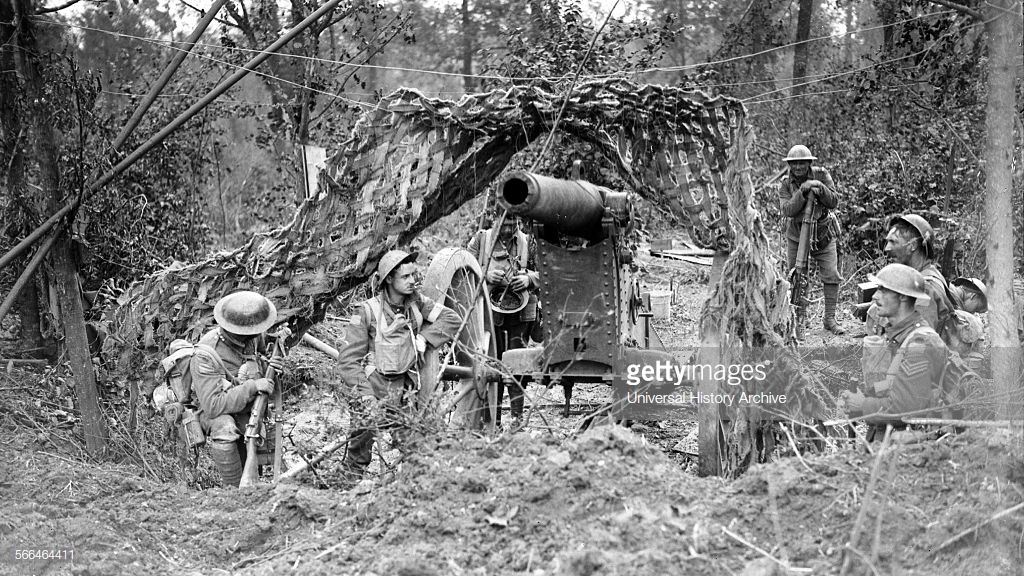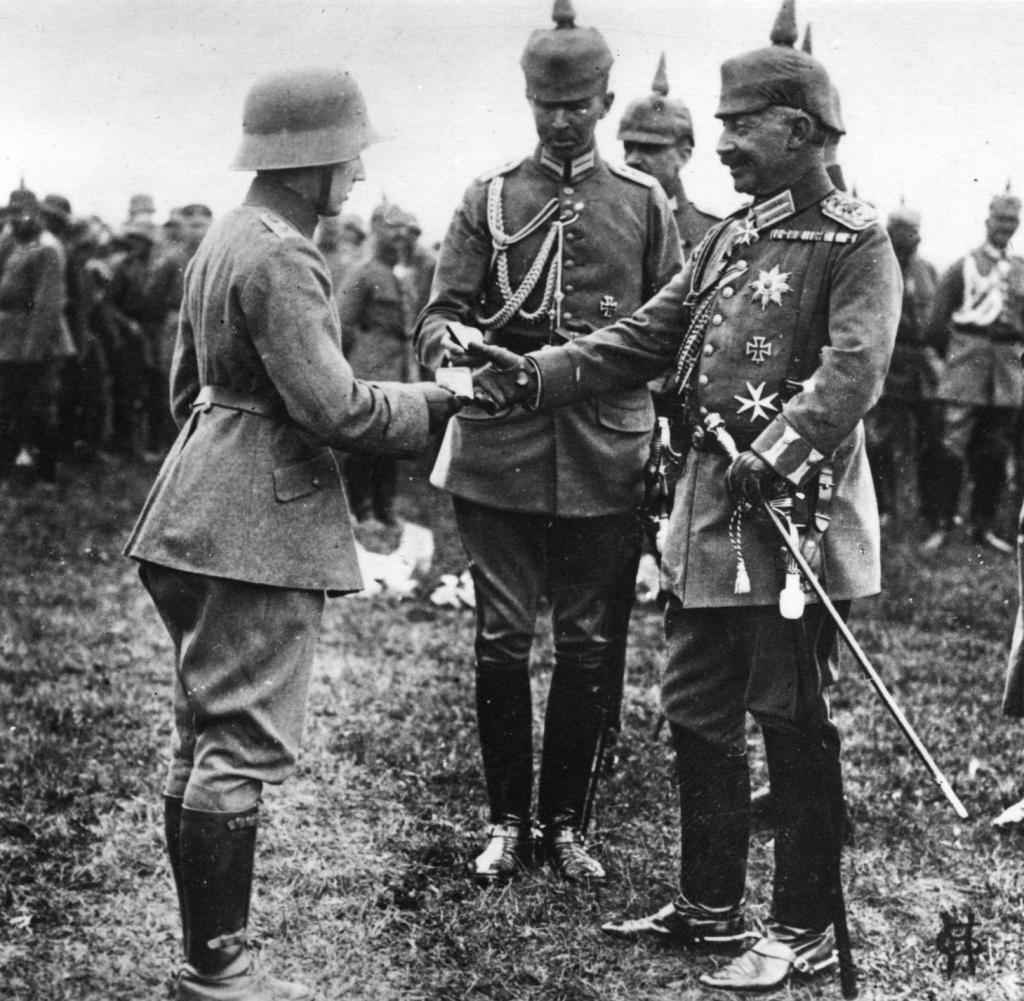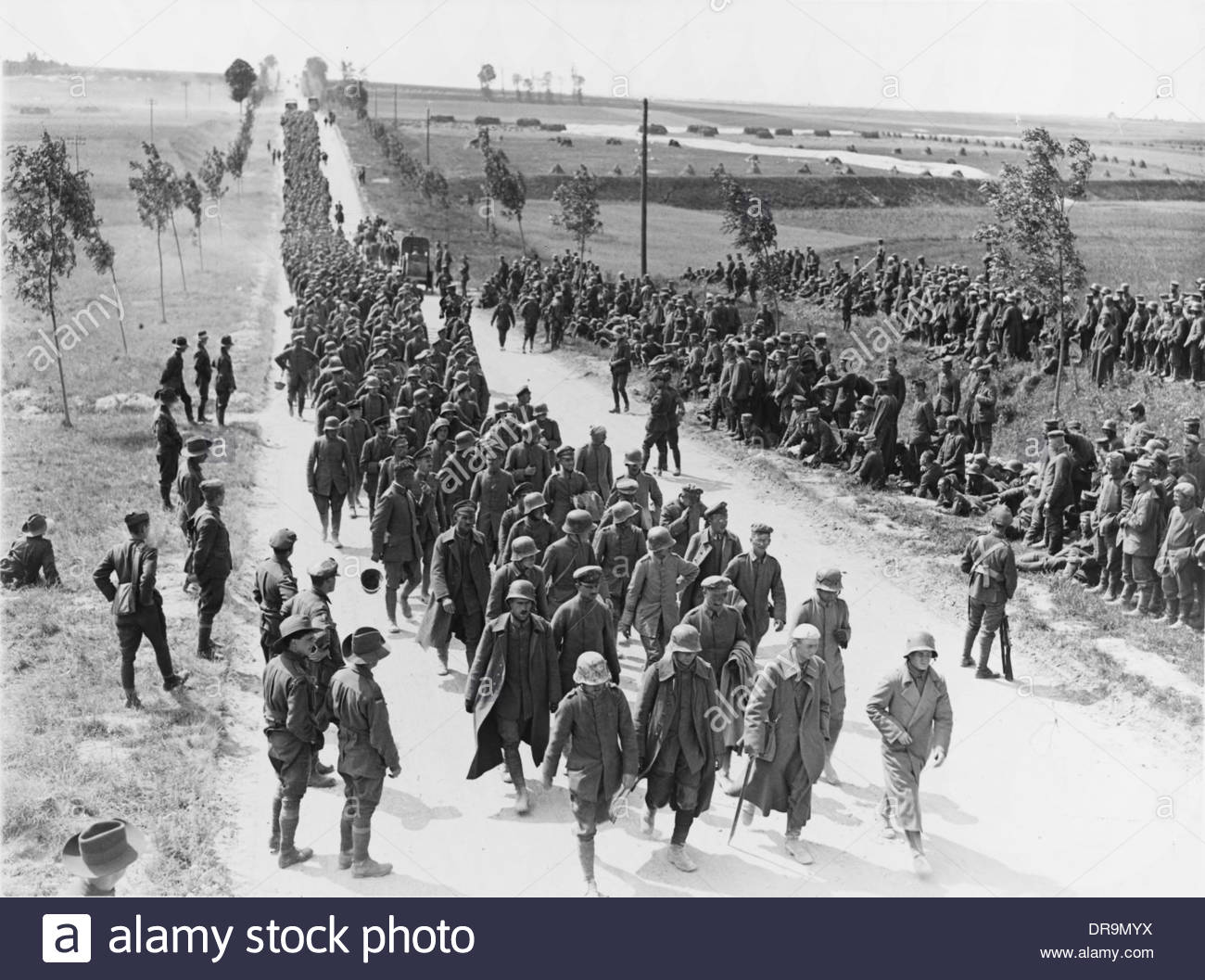Germans Shocked at American Strength.
The Kaiser Received in Silence;
A Bitter Epitaph.
Special to The Great War Project.
(20 August) It’s a decisive moment in the Great War.
Pessimism among the German high command deepens a century ago on the Western Front.

Morale high among Allied soldiers, August 1918.
In early August, French, British, and Dominion troops are preparing themselves for a renewed battle. “That battle will be a turning point,” writes historian Martin Gilbert.
Canadian troops advance six miles, seize twelve villages, 5000 German prisoners, and 161 guns.
Then the Allied soldiers go over the top. I gave no mercy, remembers one Allied officer.
When the Germans stopped resisting and made it clear they saw they were defeated, the British commander ordered a halt in the attack. I did not have the heart to shoot them, he said.

Canadian soldiers, August 1918.
Australian troops have a similar experience that same August day, taking seven villages, nearly 8,000 German prisoners, and 173 guns.
Said the German Kaiser that day, “We have reached the limits of our capacity. The war must be ended.”
But the Kaiser still does not face the full truth of the German collapse. In his view, reports historian Gilbert, the war had to be ended on a positive note for Germany, “when Germany was making progress on the battlefield, so that it could obtain at least a minimum of its war aims.”
August 8th a century ago is indeed “the black day of the German army.”
The strength of the Allied forces on the Western Front is nearing six million. Nearly one-third of them are American.
“On the home front,” reports historian Adam Hochschild….
“the war of attrition was taking its toll and German morale was crumbling.”
“With nervous sweat visible on his face, the Kaiser speaks to sullen munitions workers at the giant Krupp factory, railing against rumormongers and antiwar agitators and urging a fight to the end.”
“To every single one of us,” the Kaiser declares, “his task is given. To you your hammer, to you at your lathe, to me upon my throne.”

The Kaiser on the battlefield.
Historian Hochschild reports: “Embarrassingly, he was received with scattered laughs and silence.”
“In a matter of days,” reports Hochschild, “British and Belgian troops recaptured the ground that had taken Britain months and hundreds of thousands of casualties to win in the Battle of Passchendaele.”
On August 10th a century ago, reports historian Gilbert, “seven fresh German divisions arrived to take their place in the line. A group of drunken German soldiers shouts at them: “What do you war-prolongers want?”
Senior military and political leaders in Germany and Austria recommend immediate peace negotiations. Writes one: “Our military situation has deteriorated so rapidly that I no longer believe we can hold out over the winter. It is even possible that a catastrophe will come earlier”
He adds: “The Americans are multiplying in a way we never dreamed of.”
The Black Day of the German Army.
One of the casualties in this Allied offensive is the son of the well-known writer, Rudyard Kipling, whose son John was killed on the Western Front. Kipling writes his son’s epitaph:
If any question why we died,
Tell them, because our fathers lied.


1 comment for “HUGE AMERICAN PRESENCE ON WESTERN FRONT”